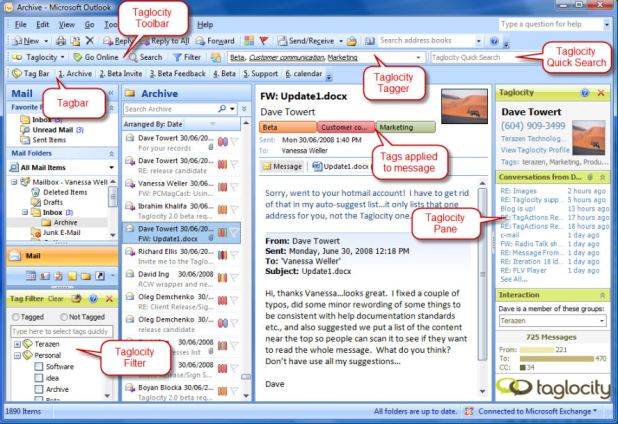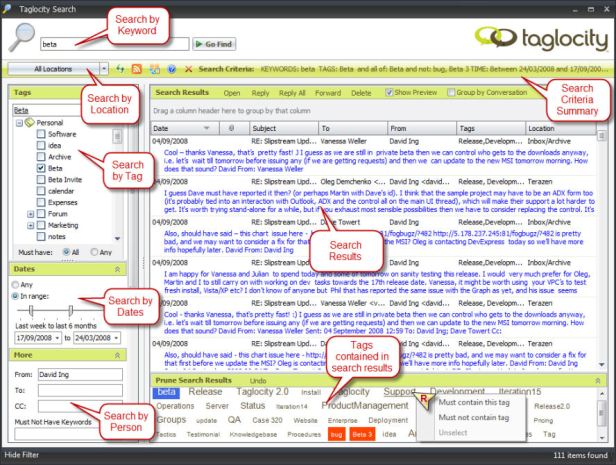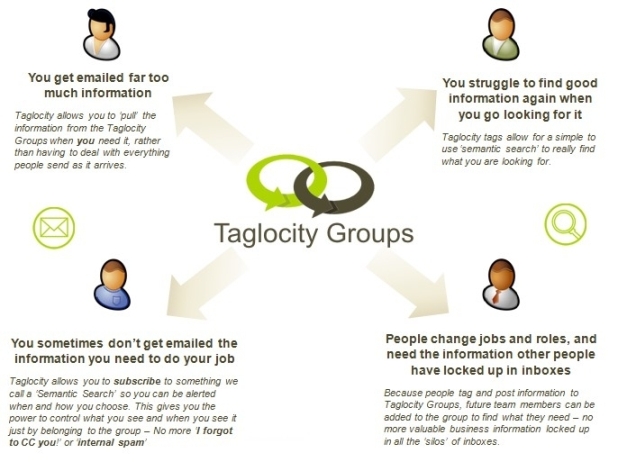 As a Gmail power user, you don’t need to convince me about the advantages of handling your email avalanche through a fast, web-based management system instead of a bloated piece of desktop software. I’ve long kissed Microsoft Outlook goodbye, although there’s no denying that it is still extremely popular in business environments, to the extent that it may possibly remain the dominating professional email management software for years to come.
As a Gmail power user, you don’t need to convince me about the advantages of handling your email avalanche through a fast, web-based management system instead of a bloated piece of desktop software. I’ve long kissed Microsoft Outlook goodbye, although there’s no denying that it is still extremely popular in business environments, to the extent that it may possibly remain the dominating professional email management software for years to come.
Now TechCrunch 50 DemoPit alumnus Taglocity is releasing version 2.0 of what they say marries the best of both worlds. It’s essentially an add-on that is supposed to enhance Outlook 2003/2007 with a number of key productivity and knowledge sharing features.
Hate that folder system? Taglocity 2.0 will turn messages, contacts, calendar entries, etc. into taggable items or virtual folders much like Gmail does with labels.
Don’t like the default search functionality? Taglocity 2.0 will provide additional context to keyword searches so you don’t spend so much time looking for that one message or contact.
A fan of threaded conversations? Taglocity 2.0 can bring all emails related to a certain conversation in a single viewer in blog-like chronological order, and enables you to group them together.
Taglocity 2.0 for Outlook also offers integration with another product, Taglocity Groups, which they refer to as an “Enterprise Web 2.0 inspired email collaboration service for groups” enabling users to share information, reduce email overload, and improve productivity.
You can find out for yourself what that means: get Taglocity 2.0 here, free of charge (there’s also a premium version with advanced features at $99 per user).
A big challenge the startup is going to face is that people are required to tag all their existing items in Outlook manually, which is bound to take a lot of time for those who use Outlook a lot (i.e. Taglocity’s core audience). Maybe something like TagCow could come in handy here, too.
Other companies trying to make Outlook better include Xobni and Add-in Express.


